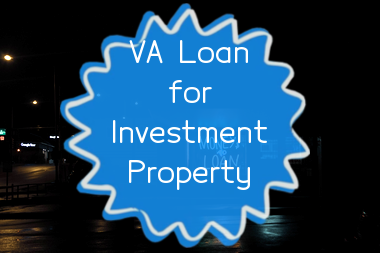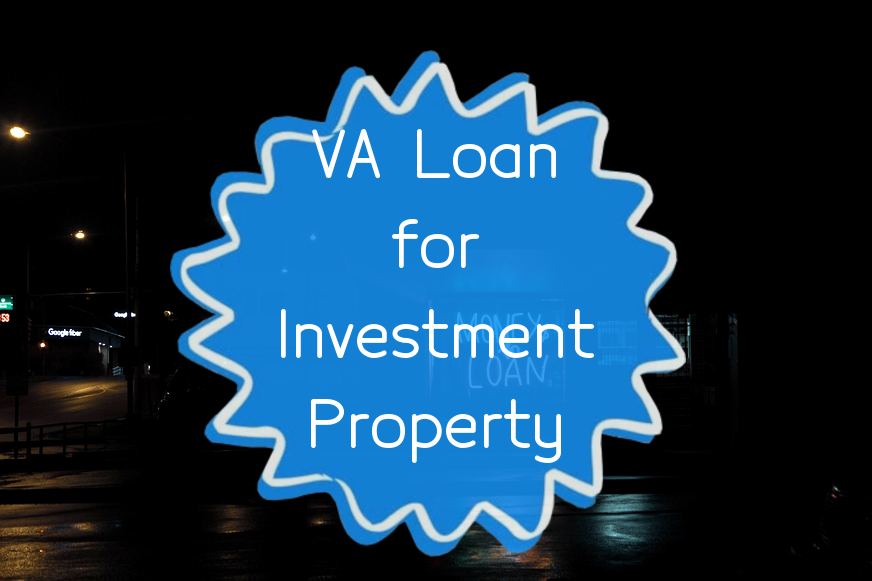Generally speaking, VA loans are intended to help eligible service members, veterans, and their surviving spouses purchase a home to live in, and not necessarily for investment properties. However, there are some ways to use a VA loan for an investment property with some restrictions:
- 1. Owner-occupied properties: The property must first be intended to serve as the borrower's primary residence for at least one year before being rented out.
- 2. Multi-family homes: VA loans can be used to purchase multifamily homes but only if the borrower lives in one of the units. This means the borrower can rent out other units but will need to occupy at least one.
- 3. Renovations: VA renovation loans can be used to finance the purchase and renovation of a property with the intention of renting it out.
It's essential to consult with a mortgage lender or financial advisor that specializes in VA loans to see if investing in real estate using VA loans is a sensible option for your particular situation.
VA Loans 101
VA loans are a type of mortgage loan available to United States military veterans, active-duty personnel, or surviving spouses. Here are some key points to know about VA loans:
- 1No down payment is required. VA loans do not require a down payment as long as the sale price of the home does not exceed its appraised value.
- 2No mortgage insurance is required. Most conventional loans require private mortgage insurance (PMI) if a borrower puts down less than 20% of the home's value, but VA loans do not require this.
- 3Eligibility is based on military service. To be eligible for a VA loan, you must have served at least 90 consecutive days of active duty during wartime, or 181 days of active duty during peacetime. Veterans who were discharged due to a service-related disability may also be eligible.
- 4Funding fees apply. VA loans require a funding fee, which can be paid upfront or rolled into the loan. The amount of the funding fee varies based on the type of service, down payment, and whether the borrower has used a VA loan before.
- 5VA loans offer competitive interest rates. VA loans often have lower interest rates than conventional loans, making them an attractive option for eligible borrowers.
Overall, VA loans are a valuable benefit of military service that can help veterans achieve homeownership with favorable terms and conditions.
Eligibility for VA Loans
VA loans are a type of mortgage loan that is available to veterans, active-duty service members, and eligible surviving spouses of military service members. To be eligible for a VA loan, you must meet certain criteria:
- 1Military Service: You must have served at least 181 consecutive days of active duty during peacetime or 90 days of continuous active service during wartime. If you are still on active duty, you may be eligible after serving for 90 days.
- 2Discharge Status: You must have been discharged under conditions other than dishonorable.
- 3Certificate of Eligibility: You must obtain a Certificate of Eligibility (COE) from the VA, which proves that you meet the eligibility requirements.
- 4Income: You must have a stable income that is sufficient to meet your monthly expenses and the mortgage payments.
- 5Credit Score: You must have a minimum credit score of 620 or higher to be eligible for a VA loan.
- 6Property: The property you intend to purchase must meet certain standards set by the VA, including being appraised by a VA-approved appraiser.
Meeting these eligibility requirements allows you to apply for a VA loan, which can provide you with a range of benefits, including no down payment requirements, competitive interest rates, and no private mortgage insurance premiums.
Can You Use a VA Loan for an Investment Property?
VA loans are designed to help eligible veterans and active-duty service members buy, build, or refinance a primary residence. The Department of Veterans Affairs does not allow a VA loan to be used for investment properties such as rental homes or vacation homes. The property must be intended to be the borrower's primary residence.
However, there are some situations where a borrower may be able to purchase a multi-unit property with a VA loan and rent out the other units while living in one. This is known as a VA multi-unit property purchase. But in this case, the borrower must occupy one of the units as the primary residence.
Therefore, VA loans are not typically used for investment purposes, but rather for the purchase of a primary residence. If you are interested in investing in real estate, a conventional loan or other investment property loan may be more appropriate.
Qualifying for a VA Loan
Qualifying for a VA (Department of Veterans Affairs) loan involves meeting certain requirements set by the VA. These requirements include:
- 1Eligibility: The borrower must be a veteran, active-duty service member, or a surviving spouse of a veteran who died while serving on active duty.
- 2Income and Employment: The borrower must have a stable income and employment history to show that they will be able to afford the mortgage payments.
- 3Credit Score and History: The borrower must have a minimum credit score and a clean credit history. While there is no official credit score requirement, most lenders prefer a minimum FICO score of 620.
- 4Debt-to-Income Ratio: The borrower's debt-to-income (DTI) ratio which refers to the amount of debt payments compared to the borrower's income must meet established guidelines. A DTI ratio of 41% or lower is preferred, but exceptions may be made in certain cases.
- 5Residency: The borrower must intend to use the property as their primary residence.
- 6Property Requirements: The property being purchased must meet certain minimum property requirements (MPRs), such as being structurally sound and free of health and safety hazards.
Overall, the VA loan program is designed to help veterans and active-duty service members achieve homeownership and offers favorable terms such as low or even zero down payment options, no mortgage insurance, and competitive interest rates.
Alternatives to VA Loans to Fund Rental Properties
If you are planning to buy rental properties and looking for alternatives to VA loans, here are some options:
- 1Conventional loans: This is a popular option for investors who want to purchase rental properties. This type of loan is offered by banks and mortgage companies and has different qualification criteria than VA loans. With a conventional loan, you may need to have a higher credit score and a larger down payment.
- 2FHA loans: This is another alternative to VA loans that can be used to purchase rental properties. FHA loans are backed by the Federal Housing Administration (FHA) and designed for low-to-moderate-income borrowers. The down payment requirements are lower than conventional loans, but you may need to pay mortgage insurance.
- 3Private money loans: Private money lenders provide short-term loans to real estate investors. These loans are generally used to purchase and renovate the property, and then the investor can refinance with a conventional loan or sell the property. Private money loans have higher interest rates and fees than other loan options.
- 4Hard money loans: Hard money lenders also provide short-term loans to investors. These loans have higher interest rates and fees than traditional loans, but the approval process is faster. They often require a large down payment and have a shorter repayment period.
- 5HELOC (home equity line of credit): If you already own a home with equity, you can use a HELOC to finance your rental property purchase. This loan lets you borrow against the equity in your home and use it to buy another property. However, this option carries higher risk, and it's vital to have a solid repayment plan in place.
Overall, there are several alternatives to VA loans that you can use to fund your rental properties. However, it's vital to research all options and choose the one that best suits your financial needs and investment goals.
Just one more thing: if you liked the article, please like us on social media and share this article with friends.



